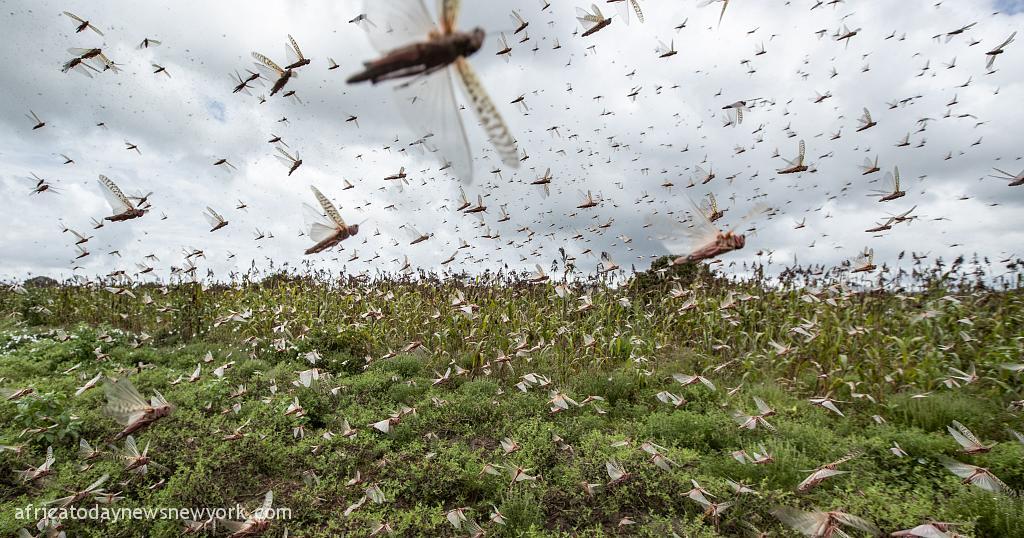The federal government of Nigeria has confirmed the invasion of swarm birds and locusts destroying farm produce in no fewer than three northern states.
Africa Today News, New York gathered that the affected states are Sokoto, Kebbi, and Zamfara.
The chief veterinary officer of the federation, Dr. Maimuna Habibu, Saturday said the reported cases of locusts’ invasion were particularly recorded in Zamfara and Kebbi states.
Dr. Habibu said the ministry has already deployed officers to begin aerial attacks against the locusts in the affected states.
Read Also: Pakistan Struggles To Combat Devastating Locust Plague
She said the federal government’s action followed complaints of destruction of crops from farmers in the affected states.
Billions of locusts swarming through East Africa are the result of extreme weather swings and could prove catastrophic for a region still reeling from drought and deadly floods, experts said Friday.
Dense clouds of the ravenous insects have spread from Ethiopia and Somalia into Kenya, in the region’s worse infestation in decades.
The UN’s Food and Agriculture Organization (FAO) estimated one swarm in Kenya at around 2,400 square kilometres (about 930 square miles) — an area almost the size of Moscow — meaning it could contain up to 200 billion locusts, each of which consume their own weight in food every day.
The locust invasion is the biggest in Ethiopia and Somalia in 25 years, and the biggest in Kenya in 70 years, according to the FAO.
If unchecked, locust numbers could grow 500 times by June, spreading to Uganda and South Sudan, becoming a plague that will devastate crops and pasture in a region which is already one of the poorest and most vulnerable in the world.
This could lead to ‘a major food security problem’, Guleid Artan from regional expert group the Climate Prediction and Applications Centre (ICPAC), told a press conference in Nairobi.
The locusts, he said, were the latest symptom of extreme conditions that saw 2019 start with a drought and end in one of the wettest rainy seasons in four decades in some parts — with floods killing hundreds across East Africa.

